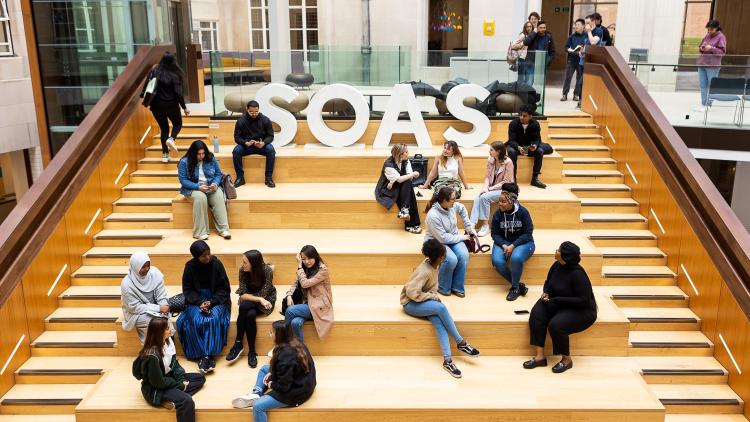Writing an academic essay: A student’s guide from prompt to perfection


BA student Saleeta Akbar reflects on her essay writing journey from school to university, sharing tips on what to focus on and how to keep improving.
University academic essays demand a more in-depth and complex critical analysis, which can take some time to learn effectively. The challenge of meeting such high expectations can be daunting and overwhelming for most fresher students.
I still remember the stark contrast in university grading standards after I submitted my first assignment in term 1. Navigating through my grades and professor feedback, I realised that mastering critical analysis was paramount in the world of academic essays, which can be hard to master. However, with each essay, I embraced the challenge, gradually adapting and refining my approach. Here are a few tips I wish I knew before writing my first academic essay:
How to prepare for your essay
Understanding the topic before diving in is crucial for many students facing an academic essay. I usually find it beneficial to talk with a friend about it after class or over a cup of coffee. Sharing your insights and debating different perspectives to approach the topic from various angles can be an excellent way to kickstart the essay. Deciphering the essay prompt or question involves carefully reading and analysing the assignment requirements. These encompass the topic, structure, and formatting guidelines.
Part of the joy in this process lies in embracing the journey itself, where unexpected insights and discoveries can lead to valuable shifts in your thinking.
I recommend starting early; otherwise, you might find yourself cramming two hours before the 11:59 pm deadline. I usually go by the reverse planning method; you begin by thinking about the end result of your essay that you want to achieve. From there, you figure out what steps are needed for those results to happen.
However, I am always open to changing my perspective along the way. Part of the joy in this process lies in embracing the journey itself, where unexpected insights and discoveries can lead to valuable shifts in your thinking. This approach allows for adaptivity and encourages dynamic engagement with newfound sources and structural improvements.
Structure your essay effectively
Using primary and secondary sources for research is essential, and accessing the SOAS Library can be beneficial. A well-structured essay significantly enhances readability and clarity. I would consider adopting the traditional essay structure, which includes an attention-grabbing introduction, body paragraphs supported by evidence, and a conclusion that summarises arguments and/or offers insights for further research.
Do not just list down the contents, it is essential to add your critics and support it with clear evidence. Make sure you cite sources and evidence accurately by following specific guidelines as this is very specific to academic writing as it lends credibility and authority to your work. Citing is a critical skill that requires consistent practice and mastery over time.
A bibliography should be included at the end of every essay. Lecturers usually specify the referencing style they prefer, such as Harvard, Vancouver, and APA referencing. For example, when citing in Harvard referencing style, include the author, year, title, place, publisher, URL, and date of access. Example: 'Childers, J.W. (2012) 'Social class in the Victorian novel', in David, D. (ed.) The Cambridge Companion to the Victorian novel. 2nd edn. Cambridge: Cambridge University Press, pp. 148-169.'
Always keep the word count in mind and make sure to structure it accordingly, for example allocating up to 50% of your text body to the introduction and conclusion will not result in a well-rounded essay.
What to ask yourself after your first draft
Finishing a first draft is a great achievement but it's important to remember that it's not the final. If you have time, it can be helpful to put your draft aside for a couple of days and then go back and ask yourself these questions before amending:
- Does this essay directly address the set task?
- Does it present a strong, supported position?
- Does it use relevant sources appropriately?
- Is the expression clear, and the style appropriate?
- Is the essay organised coherently?
- Is there a clear introduction, body and conclusion?
Give yourself time to keep revising
Always save time to evaluate the content of each paragraph, as there is always room for improvement. I regularly proofread my essays for grammar or plagiarism. Do not hesitate to contact your lecture professor with any queries. They can help you with clarification.
Writing your first academic essay can be an overwhelming but ultimately rewarding experience. Remember, every essay is an opportunity to refine your skills and contribute to the scholarly discourse in your academic field. Happy writing!
About the author
Saleeta Akbar is an international student from Pakistan who is in her first-year studying BSc Management and working as a Co-Creator Intern for the SOAS Communications Team.




